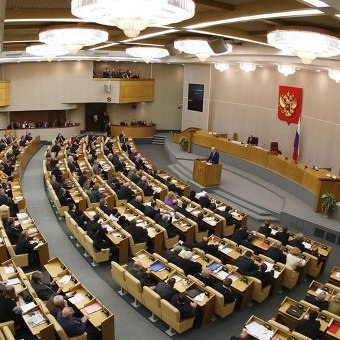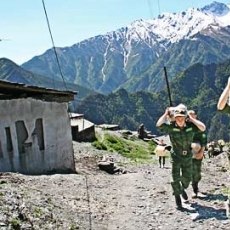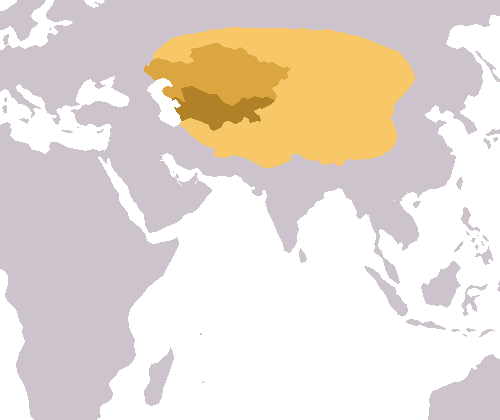(Eurasia Daily Monitor) The meteor that exploded over Chelyabinsk in the early hours of February 15, as damaging as it was, produced even more jokes than material destruction. One of those was about the State Duma urgently approving legislation banning the incursions of celestial bodies because of their pronounced anti-Russian inclinations (Newsru.com, February 15). The joke captures the frantic activity of the Russian parliament, which has lost legitimacy in the crudely falsified elections in December 2011. As a result, the Duma now tries to compensate for this disgrace by producing a deluge of laws aimed at restricting the growth of the country’s fledgling civil society and promoting “patriotism” even in such ugly forms as the prohibition of adoption of orphans by American families. Consequently, this commonly disparaged institution is now seen by a record high 42 percent of Russians as playing a big or very big role in Russia’s political life (Levada.ru, February 14). The unintended consequence of this attention-seeking behavior, however, has been a series of scandals that reveal the scope of corruption among the parliamentarians who are supposed to represent a key part of the political establishment (Moskovsky Komsomolets, February 14).
Vladimir Pehtin, the head of the committee on parliamentary ethics, had to resign from this chair after the publication by activist-blogger Alexei Navalny of documents confirming his ownership of a condo in Miami, which was not mentioned in his tax declaration (RIA Novosti, February 13). This revelation could have gone unnoticed, if it had not coincided with President Vladimir Putin’s introduction of a draft law that would prohibit a wide group of key state officials from holding bank accounts abroad, while all real estate owned overseas would need to be declared (Nezavisimaya Gazeta, February 13; see EDM, February 14). The aim of this legislation is to ensure loyalty among the prime beneficiaries of the “power-is-money” regime through the newly-launched campaign of “nationalization of the elites” (Forbes.ru, February 13). The predatory elites, however, remain reluctant to be “nationalized” in terms of repatriating their ill-gained fortunes. Keeping their wealth abroad allows them to enjoy a level of property rights, which are mostly non-existent in Russia.
These elites have suddenly discovered they can no longer dismiss as irrelevant the disclosures of their “safe havens” by fierce bloggers who promise hundreds of new sensations in the campaign called “Pehting”—the resonance in Internet-savvy Russia has grown too damaging (Vedomosti, February 13). Putin, on the other hand, has recognized the […]
Read the full article | © Eurasia Daily Monitor Volume (10: 30)











